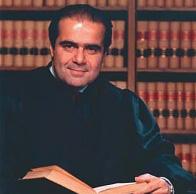Hiring the Best

If you can't learn something from a U.S. Supreme Court Justice, who can you learn it from?
I recently read in The New York Times about Justice Antonin Scalia's theory for hiring his clerks, which he espoused during a lecture on administrative law at American University Washington College of Law.
"By and large, I'm going to be picking from the law schools that basically are the hardest to get into," Scalia was quoted as saying. "They admit the best and the brightest, and they may not teach very well, but you can't make a sow's ear out of a silk purse. If they come in the best and the brightest, they're probably going to leave the best and the brightest, O.K.?"
IT'S THE CREDENTIALS
In the last six years, no one from Washington College of Law had been hired by any Supreme Court justice as a clerk.
But, I enjoyed Scalia's "however," which followed: One of his former clerks "whom I am the most proud of," attended law school at Ohio State and had been hired by Justice Lewis F. Powell Jr. just as Powell was retiring. He was reassigned to help in Scalia's chambers. The clerk, Jeffrey S. Sutton, now sits on the Sixth Circuit Court of Appeals in Cincinnati.

Justice Antonin Scalia ©The Collection of the Supreme Court of the United States "I wouldn't have hired Jeff Sutton," Scalia told the group. "For God's sake, he went to Ohio State! And he's one of the very best law clerks I ever had."
It's not the Production Manager's place to go telling a Supreme Court Justice he's wrong, so I'll offer up a second example.
An executive producer came to work at my station from a larger market. She had a standing rule at her old station that (as I remember it) you couldn't move from a certain lower position, such as a production assistant, to a certain higher position, maybe it was a producer/reporter position. You had to leave for a smaller market and then come back.
After she left her old station, one of her former employees, whom the executive producer had roadblocked from making that particular move, had, in fact, been promoted to that next position. Now that the former employee was in the impossible-to-get-to-job, she qualified to come to work for us, which she did.
It's credential hiring, or at least credential screening. And for the Supreme Court justice, who likely knows none of his perspective clerk candidates before the hiring process begins, sticking with the "top" law schools may in fact be a good way of winnowing down the list. (That assumes the candidates didn't get into that "top" law school because of who their parents are.)
But when you know a candidate already—where you've been able to see what they can do—if they're the best candidate in every other way, the credential thing seems like an artificial barrier to me.
Besides, as a broadcasting company president once told me, "You're better off hiring the SOB you know rather than the SOB you don't know." (I cleaned that up a bit.)
WELL ROUNDED
With that little rant off my chest, I'll tell you a tool a news director used to evaluate reporter/photographer candidates at a small market station where I worked. It was a written test. One question asked the candidate to name all nine Supreme Court justices.
The news director shared his logic with me: he wanted to hire reporters/photographers who could write stories and shoot video. But, while he could work with them on their writing and shooting, he thought these people would be better at their jobs if they already had enough interest in government that they knew who those nine justices were.
If I can't watch a candidate for a job work, or even if I have had such a chance, it's my preference to look at (and listen to) what they've done. The television business is a physical one, with words written, narrations voiced, video shot and edited, equipment fixed, shows produced and talent doing talent stuff.
And then you want to make sure that they're the kind of employee where you'll be checking the "plays well with others" box on their future performance appraisals.
Craig Johnston is a Seattle-based Internet and multimedia producer with an extensive background in broadcast. He can be reached atcraig@craigjohnston.com.
Get the TV Tech Newsletter
The professional video industry's #1 source for news, trends and product and tech information. Sign up below.
